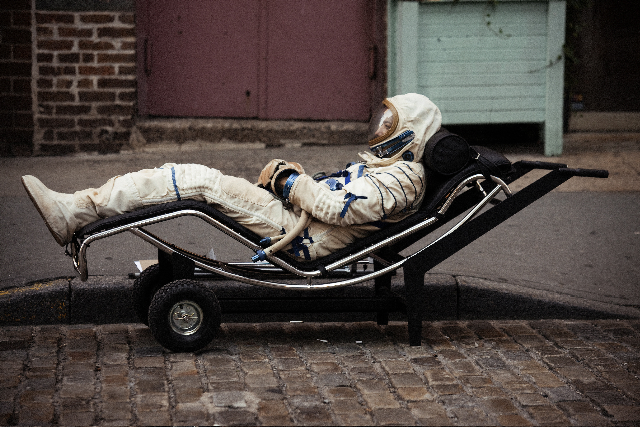Among space-exploration enthusiasts, Jean-Jacques Dordain, former Director General of the European Space Agency, is something of a dissenter. While he thinks humans traveling to Mars inevitable, he’s not among those contemporary thinkers (Stephen Hawking, Freeman Dyson, Elon Musk, etc.) who believes Homo sapiens is capable of being a multi-planet species. He’s probably right if we’re talking about the immediate future but almost definitely wrong if the long-term one is considered.
In a 2014 RT interview conducted by Sophie Shevarnadze, Dordain contended that space is too inhospitable to allow a Manifest Destiny on Mars and more. There were unfortunately no follow-up questions about domed environments and 3D-printed structures and such, so I don’t know precisely why he felt that way. In contrast, his successor at ESA, Johann-Dietrich Wörner, immediately proposed building moon colonies after taking office in 2015.
From RT:
Question:
Are you actually an advocate of Mars colonization?
Jean-Jacques Dordain:
Colonization – I don’t know, but we should certainly go to Mars with humans, and we should certainly stay on Mars – humans will stay on Mars, I think it is just a matter of calendar. I never said that it’s not “if” – it’s “when”. We have some time. If you go to Mars 10 years later – what’s the difference? It may make a difference for me, because I will not see it, but it will not make a difference for humanity. I must say, if we had gone to North Pole 50 years later than today – it would not change anything. I am convinced, yes, that humans will go to Mars, for me it’s not a question, it’s just a calendar.
Question:
I’m just trying to understand what’s at the root of…you’re saying “exploration is inherent for mankind, exploration makes us human and it must involve a human presence” – so you are for human presence everywhere, but – is it exploration just for discovery or exploration to conquer?
Jean-Jacques Dordain:
I think it’s more for discovery and also to make the future on planet Earth possible. I must say that there is no alternative of planet Earth for humanity. This is maybe something that we have learned from space. There is no other place where this humanity can live. We cannot live on different planets in Solar System and going to an exoplanet will be much too far away, at least with the technologies that we know. So, we have no alternatives but to stay together on planet Earth. Now, does that mean that we should continue to find all resources that we need just on planet Earth, that it’s number one, and maybe we should find some raw sources in other planets or on the Moon, for example- I don’t know. That is number one, number two – going to the other planet is also to understand what is future of planet Earth. Couple of billions of years ago, Mars, Earth and Venus were sister planets – and we have evolved very differently. There was water on Mars, we know it, the was, certainly, an atmosphere around Mars. Where is the water? We still find some traces. Where is the atmosphere? Today, we are living on planet Earth because there is water and atmosphere, so understanding why Mars has changed so dramatically since its creation would be certainly very interesting, to understand where we are going to ourselves. So, planet Earth is not isolated. I remember, that I ever started a speech by saying “space does not belong to Earth”, it’s the Earth which belongs to space, and we don’t have a chance to understand planet Earth if we don’t understand the overall system where we are living in, so I think that the Moon is not anymore “something” – it belongs to our environment. Mars – also, Venus – also, so I think that we have to understand that and we have to explore, because exploring Mars is also exploring planet Earth. Our future is on planet Earth, and we have to make our future possible. I am sure that our future on planet Earth, for humanity – not for me, it’s too late – but, to make the future of humanity on planet Earth possible we’d better understand the system we are living in.•

